COMED-K Code: E204
Lighted to Enlighten
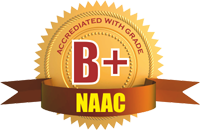
Basic Science and Humanities
About
Science is one of the vital subject without which life does not exist. Engineering is the application of basic sciences and it may be noted that all engineering branches originated from basic sciences. "Science without technology is useless and technology without science is blind".
Department of Basic Science and humanities was entrenched during the year 1979 when the college was established and is a combination of three Major departments- Engineering Physics, Engineering Chemistry and Mathematics. Along with the three major streams, additional subjects like "Universal Human Values", "Professional Ethics", "Constitution of India", "Technical English" and the regional language "Kannada" are also a part of this department to prepare the students for careers in all the fields of engineering aspects and also to carry out basic and applied research work. The Department is flourished with five well qualified and experienced faculties with international exposure; one of them is Doctorate holder. The Department also has two non-teaching staff
The department has well equipped laboratory for teaching engineering chemistry, engineering physics experiments and newly introducted MAT-LAB for all branches of engineering students. The Departments are also provided necessary computers with internet facilities.
The department is also incharge of all the activities related to fresh entrants to Engineering discipline and is been upgraded as per new syllabus under VTU. We educate and motivate technical students with necessary skills in different areas of sciences. We are teaching the students to enrich knowledge of applied basic sciences in engineering applications.
Faculty
Mathematics
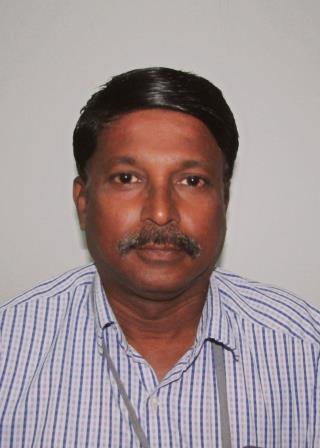 Basawarajappa , M.Sc.
Basawarajappa , M.Sc.
Assistant Professor & HOD
Experience-32 Years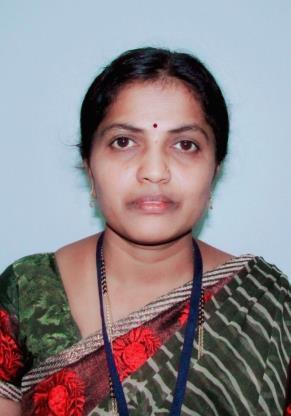 Manjula P., M.Sc.
Manjula P., M.Sc.
Assistant Professor
Experience-12 Years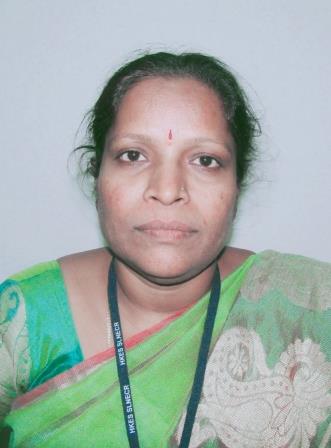 Saroja Shetty, M.Sc.
Saroja Shetty, M.Sc.
Assistant Professor
Experience-5 Years
Physics
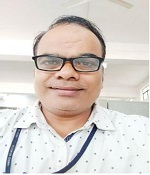 Dr. Gurunath K. B, M.Sc.,PhD
Dr. Gurunath K. B, M.Sc.,PhD
Assistant Professor & HOD
Experience-20 Years
Chemistry
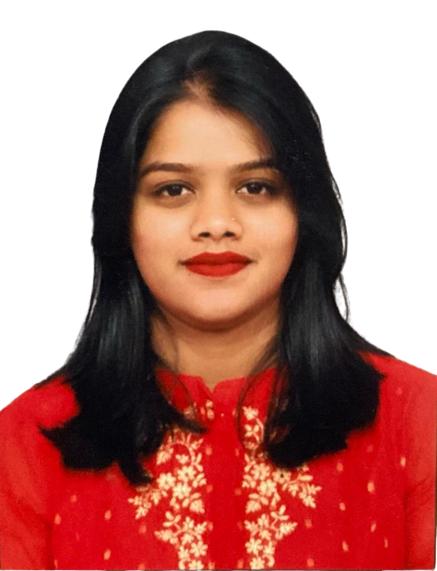 Pranitha R., M.Sc.(Ph.D.)
Pranitha R., M.Sc.(Ph.D.)
Assistant Professor
Experience - 1 Year
Infrastructure
The Department of Physics and Chemistry have dedicated Laboratories with attached Staff rooms. The department has Wi-Fi facility. Both the labs have First Aid facilities and are fitted with CCTVs.
The laboratories are provided with a black board and desks for giving instructions to the students. Physics Lab is provided with a separate Optics lab (dark room) for performing the experiments like diffraction of laser beam, which employ monochromatic light beam. The labs are well equipped with all the major necessary equipment.
Laboratory Details
| Name of the Lab | Area in Sq.m | Major Equipments |
| Physics Lab | 92.59 | Semiconductor Energy Gap Setup, Plank's Constant setup PLA 301, Ultra spectrometer & Newton Ring, Torsional Pendullum, Kits for- LCR,Trasnsistor Charaterstics, Fermi Eneregy, Photodiode, Zener Diode etc |
| Chemistry Lab | 108.10 | UV Visible Spectrophotometer, Colormieter, Potentionmeter, Photometer Conductometer etc  |
Dept of CIVIL Engg.

Dept of ECE
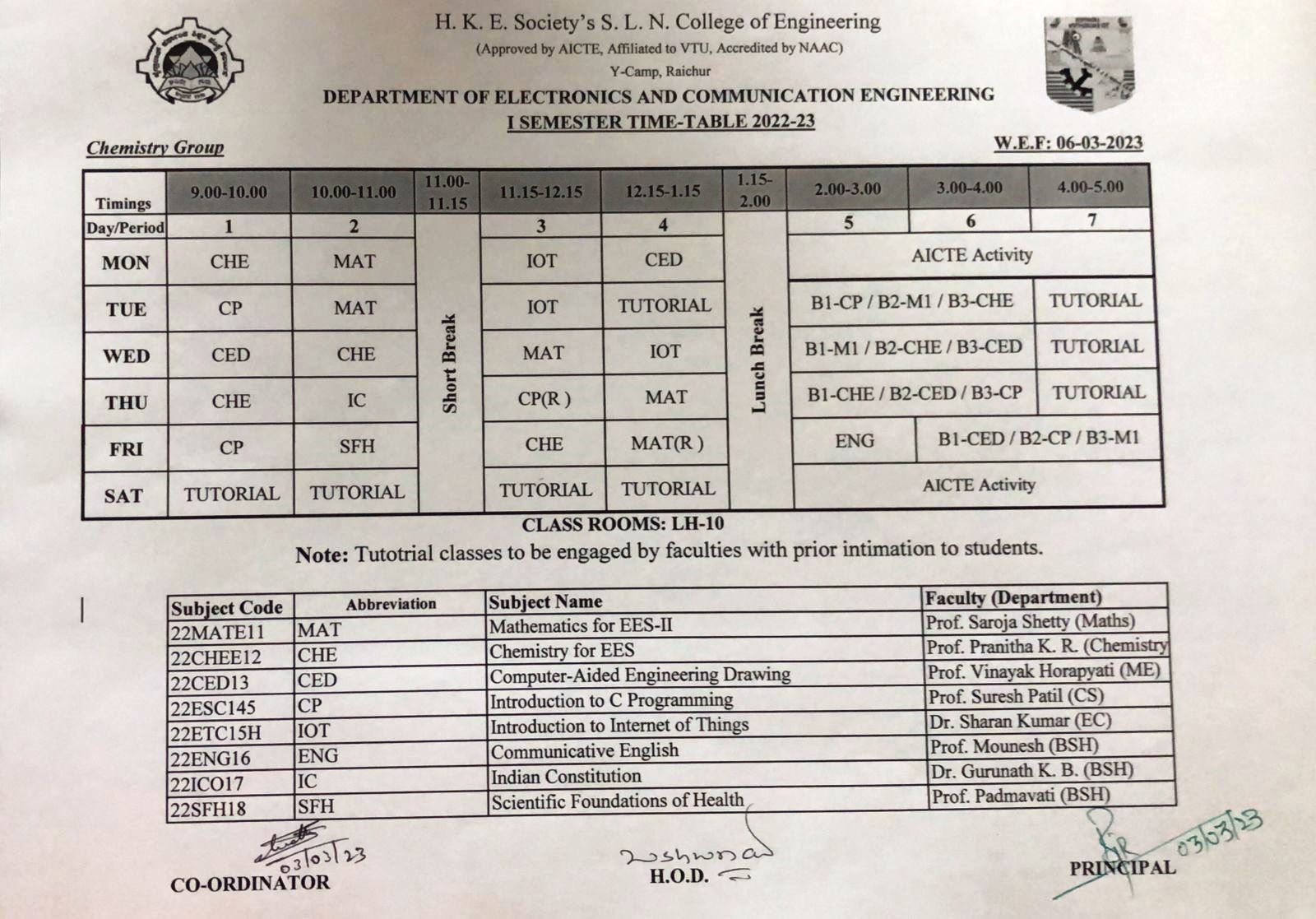
Dept of CSE
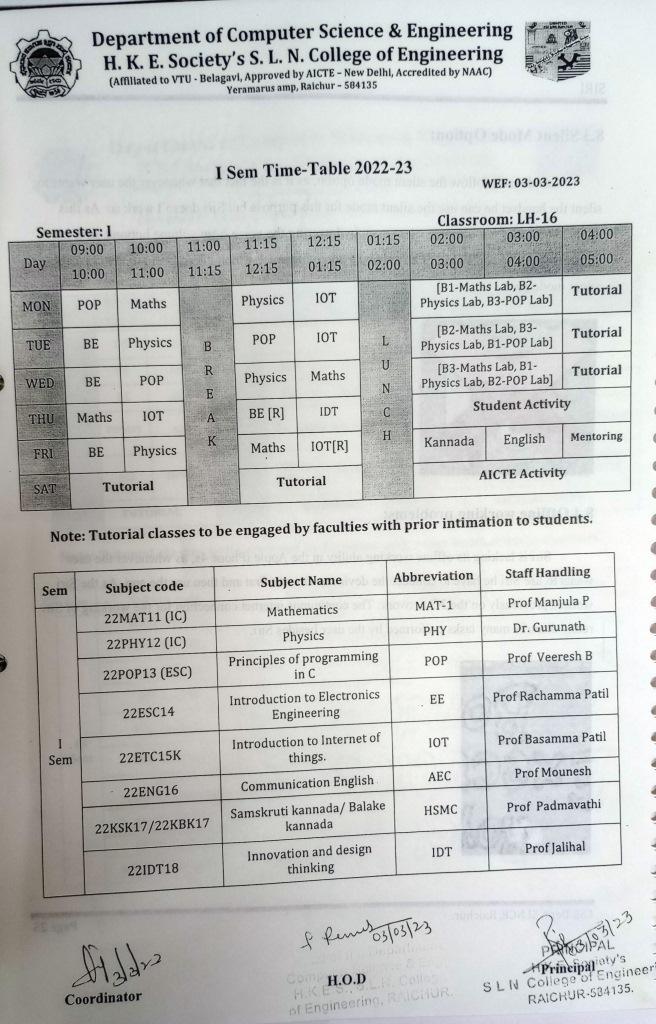
Dept. of Mechanical Engg.
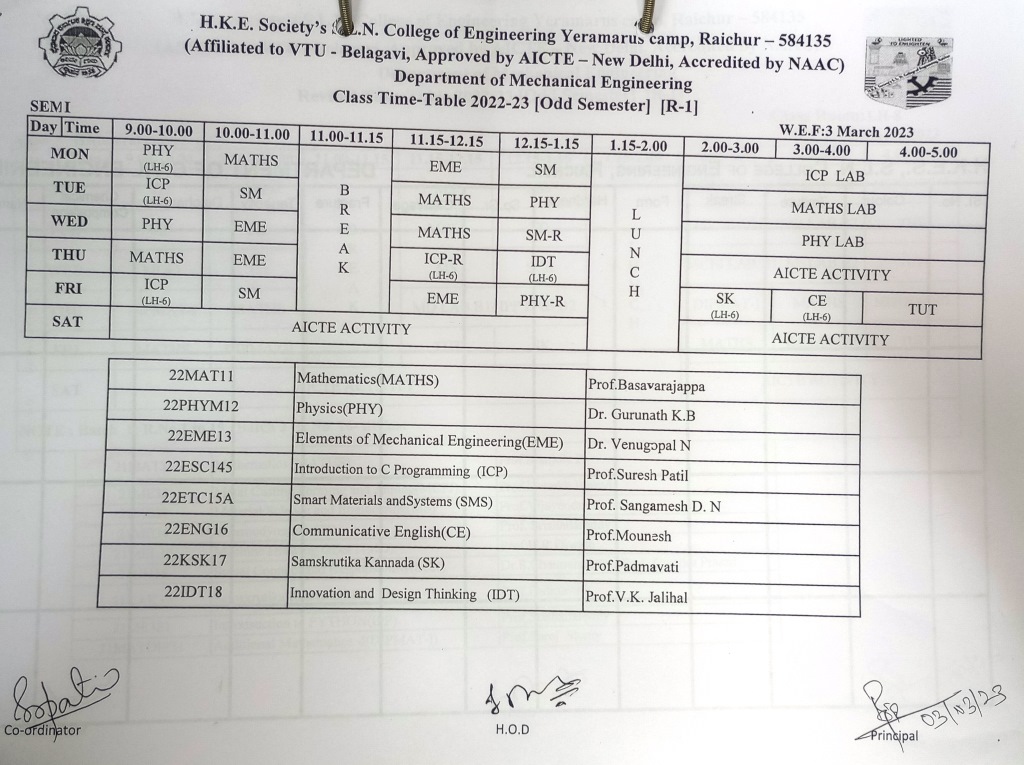
COs
| Course Name | Calculus and Linear Algebra |
| Course Code | 18MAT11 |
| CO1 | Apply the knowledge of Calculus to solve problems related to polar curves and its applications in determining the bentness of a curve |
| CO2 | Learn the notion of partial differentiation to calculate rates of change of multivariate functions and solve problems related to composite functions and jacobians |
| CO3 | Apply the concept of change of order of integration and variables to evaluate multiple integrals and their usage in computing the area and volumes |
| CO4 | Solve first order linear nonlinear differential equation analytically using standard methods |
| CO5 | Make use of matrix theory for solving system of linear equations and compute eigenvalues and eigenvectors required for Matrix diagonalization process |
| Course Name | Engineering Physics |
| Course Code | 18PHY12/22 |
| CO1 | Understand various types of oscillations and their implications, the role of shock waves in various fields and recognise the elastic properties of materials for Engineering applications |
| CO2 | Realise the interrelation between time varying electric field and magnetic field, the transverse nature of the EM waves and their role in optical fibre communication |
| CO3 | Compute eigenvalues, eigenfunctions, momentum of atomic and subatomic particles using time independent 1-D Schrodinger's wave equation |
| CO4 | Apprehend theoretical background of laser, construction and working of different types of laser and its application in different fields |
| CO5 | Understand various electrical and thermal properties of materials like conductors semiconductors and dielectrics using different theoretical models |
| Course Name | Basic Electrical Engineering |
| Course Code | 18ELE13/23 |
| CO1 | Analyse DC and AC circuits |
| CO2 | Explain the operation and construction of single phase transformer |
| CO3 | Explain the principle of operation and construction of DC machines and synchronous machines |
| CO4 | Explain the principle of operation and construction of 3 phase induction motor |
| CO5 | Discuss concepts of electrical wiring circuit protecting devices and earthing |
| Course Name | Elements of Civil Engineering and Mechanics |
| Course Code | 18CIV14/24 |
| CO1 | Mention the applications of various fields of civil engineering |
| CO2 | Compute the resultant of given force system subjected to various loads |
| CO3 | Comprehend the action of forces, moments and other loads on systems of rigid bodies and compute the reactive forces that develop as a result of the external loads |
| CO4 | Locate the centroid and compute the moment of inertia of regular and built up sections |
| CO5 | Express the relationship between the motion of bodies and analyse the bodies in motion |
| Course Name | Engineering Graphics |
| Course Code | 18EGDL15/25 |
| CO1 | Prepare engineering drawings as per BIS conventions mentioned in the relevant codes |
| CO2 | Produce computer-generated drawings using CAD software |
| CO3 | Use the knowledge of orthographic projections to represent engineering information / concepts and present the same in the form of drawings |
| CO4 | Develop isometric drawings of simple objects reading the orthographic projections of those objects |
| CO5 | Convert pictorial and isometric views of simple objects to orthographic views |
| Course Name | Engineering Physics Laboratory |
| Course Code | 18PHYL16/26 |
| CO1 | Apprehend the concepts of interference of light, diffraction of light, Fermi energy and magnetic effect of current |
| CO2 | Understand the principles of operations of optical fibres and Semiconductor devices such as photodiode, and NPN transistor using simple circuits |
| CO3 | Determine elastic moduli and moment of inertia of given materials with the help of suggested procedures |
| CO4 | Recognise the resonance concept and its practical applications |
| CO5 | Understand the importance of measurement procedure, honest recording and representing the data reduction of final results |
| Course Name | Basic Electrical Engineering Laboratory |
| Course Code | 18ELEL17/27 |
| CO1 | Identify the common electrical components and measuring instruments used for conducting experiments in electrical laboratory |
| CO2 | Compare power factor of lamps |
| CO3 | Determine impedance of an electrical circuit and power consumed in a three phase load |
| CO4 | Determine earth resistance and understand two way and three way control of lamps |
| Course Name | Technical English |
| Course Code | 18EGH18 |
| CO1 | Use grammatical English and essentials of language skills and identify the nuances of phonetics, intonation and flawless pronunciation |
| CO2 | Implement English vocabulary at command language proficiency |
| CO3 | Identify common errors in spoken and written communication |
| CO4 | Understand and improve the non-verbal communication and kinesics |
| CO5 | Perform well in campus recruitment, engineering and all other general competitive examinations |
| Course Name | Calculus and Linear Algebra |
| Course Code | 18MAT21 |
| CO1 | Illustrate the applications of multivariate Calculus to understand the solenoidal and irrotational vectors and also exhibit the interdependence of line surface and volume integrals |
| CO2 | Demonstrate various physical models through higher order differential equations and solve such linear ordinary differential equations |
| CO3 | Construct a variety of partial differential equations and solution by exact methods / method of separation of variables |
| CO4 | Explain the applications of infinite series and obtain series solution of ordinary differential equations |
| CO5 | Apply the knowledge of numerical methods in modeling of various physical and Engineering phenomena |
| Course Name | Engineering Chemistry |
| Course Code | 18CHE12/22 |
| CO1 | Use of free energy in equilibria, rationalize bulk properties and processes using thermodynamics considerations, electromechanical energy systems |
| CO2 | Causes and effects of corrosion of metals and control of corrosion. Modification of surface properties of metals to develop resistance to corrosion wear, tear, impact etc by electroplating and electroless plating |
| CO3 | Production and consumption of energy for industrialisation of country and living standards of people. Electrochemical and concentration cells. Classical, Modern batteries and fuel cells. Utilisation of solar energy for different useful forms of energy. |
| CO4 | Environmental pollution, waste management and water chemistry |
| CO5 | Different techniques of instrumental methods of analysis. Fundamental principles of Nanomaterials |
| Course Name | C programming for Problem Solving |
| Course Code | 18CPS13/23 |
| CO1 | Illustrate simple algorithms from the different domains such as mathematics, physics etc |
| CO2 | Construct a programming solution to the given problem using C |
| CO3 | Identify and correct the syntax and logical error in C programs |
| CO4 | Modularize the given problem using functions and structures |
| Course Name | Basic Electronics |
| Course Code | 18ELN14/24 |
| CO1 | Describe the operation of Diodes, BJT, FET and Operational Amplifiers |
| CO2 | Design and explain the construction of rectifiers, regulators, amplifiers and oscillators |
| CO3 | Describe general operating principles of SCRs and its application |
| CO4 | Explain the working and design of fixed voltage IC regulator using 7805 and astable oscillator using timer IC 555 |
| CO5 | Explain the different number system and their conversions and construct simple combinational and sequential logic circuits using flip flops |
| CO6 | Describe the basic principle of operation of communication system and mobile phones |
| Course Name | Elements of Mechanical Engineering |
| Course Code | 18ME15/25 |
| CO1 | Identify different sources of energy and their conversion process |
| CO2 | Explain the working principle of hydraulic turbines, pumps, IC engines and refrigeration |
| CO3 | Various metal joining processes and power transmission elements |
| CO4 | Understand the properties of common Engineering Materials and their applications in engineering industry |
| CO5 | Discuss the working of conventional machine tools, machining processes, tools and accessories |
| CO6 | Describe the advanced manufacturing systems |
| Course Name | Engineering Chemistry Laboratory |
| Course Code | 18CHEL16/26 |
| CO1 | Handling different types of instruments for analysis of materials using small quantities of materials involved for quick and accurate results |
| CO2 | Carrying out different types of titrations for estimation of concern in materials using comparatively more quantities of materials involved for good results |
| Course Name | C Programming Laboratory |
| Course Code | 18CPL17/27 |
| CO1 | Write algorithms, flowcharts and program for simple problems |
| CO2 | Correct Syntax and logical errors to execute a program |
| CO3 | Write iterative and wherever possible recursive programs |
| CO4 | Demonstrate use of functions, arrays and strings, structures and pointers in problem solving |
| Course Name | Technical English-I |
| Course Code | 18EGH28 |
| CO1 | Identify common errors in spoken and written communication |
| CO2 | Get familiarised with English vocabulary and language proficiency |
| CO3 | Improved nature and style of sensible writing and acquire employment at workplace communication skills |
| CO4 | Improve their technical communication skills through technical reading and writing practices |
| CO5 | Perform well in campus recruitment, engineering and all other general competitive exams |
Feedback Analysis
Complete details here
News & Events
Complete details here
Photo Gallery
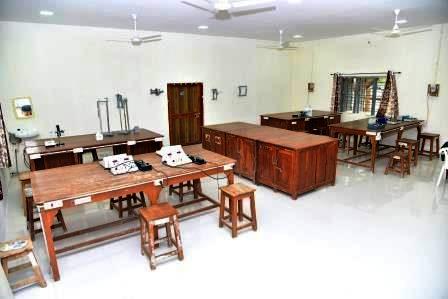
Physics Laboratory |
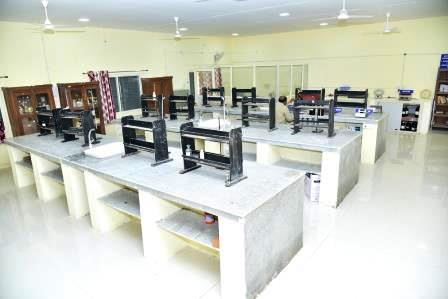
Chemistry Laboratory |
